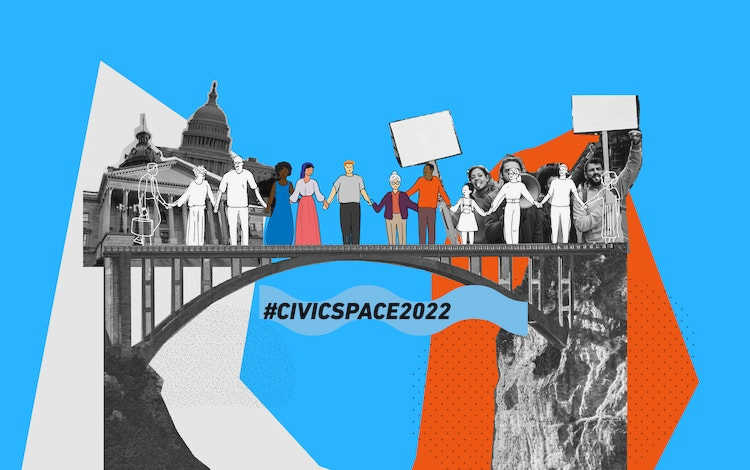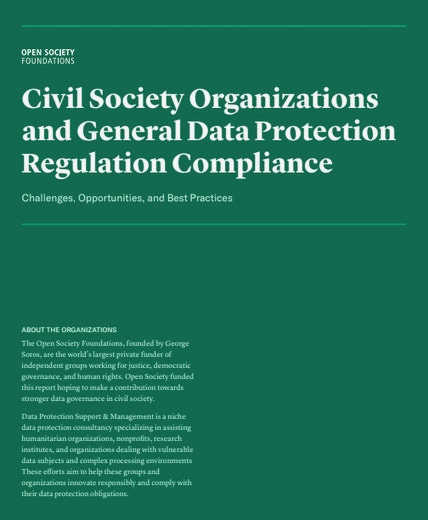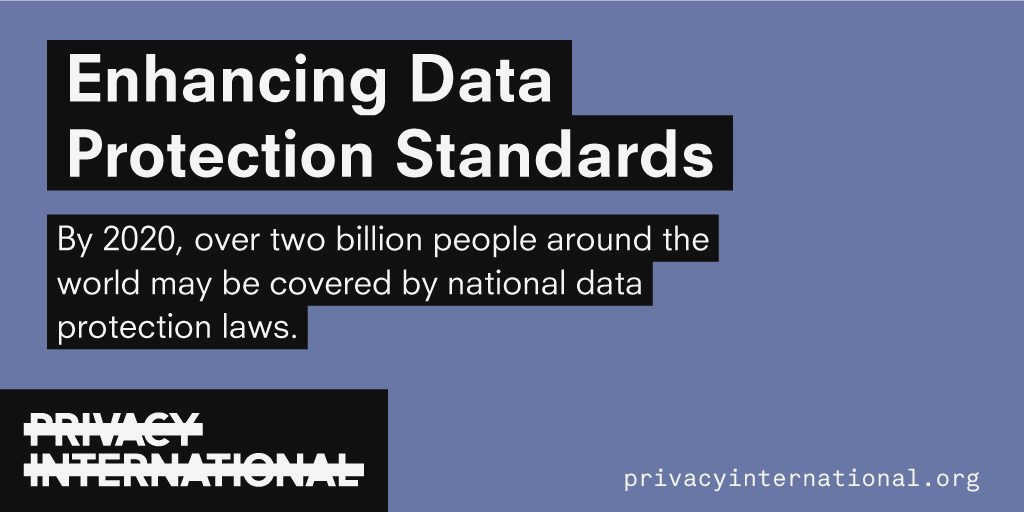Civil society organizations play a vital role in promoting democracy, human rights, and social justice. However, the important work they do often puts them at risk of surveillance and targeted attacks. In an era of increasing digitalization, it has become imperative for these organizations to enhance their privacy measures to safeguard their operations and protect the sensitive information they handle.
One of the key steps civil society organizations can take to enhance privacy is to implement strong encryption protocols. Encryption ensures that sensitive data remains secure and cannot be easily intercepted or accessed by unauthorized individuals. By using industry-standard encryption algorithms, organizations can make it significantly difficult for potential adversaries to decipher their communications and gain access to their confidential information.
In addition to encryption, organizations can also adopt secure communication platforms and tools. Platforms like Signal, for example, provide end-to-end encryption for messaging and voice calls, ensuring that conversations and data remain private and protected. By using such platforms, civil society organizations can minimize the risk of their communications being intercepted or monitored by malicious actors.
Furthermore, implementing strict access controls and multi-factor authentication can significantly enhance the security of organizational systems and data. By limiting access to authorized individuals and requiring multiple forms of verification, organizations can prevent unauthorized individuals from gaining entry and minimize the risk of data breaches.
Overall, civil society organizations must prioritize enhancing their privacy measures in order to protect their work and the individuals they serve. By implementing strong encryption protocols, using secure communication platforms, and implementing strict access controls, these organizations can minimize the risk of surveillance and targeted attacks, ensuring that they can continue their important work in a safe and secure environment.
Understanding the Importance of Privacy for Civil Society Organizations
Civil society organizations play a crucial role in advocating for human rights, promoting social justice, and bringing about positive change in communities. However, the work of these organizations often involves handling sensitive information and engaging in activities that may face opposition or surveillance from governments, corporations, or other entities.
Privacy is essential for civil society organizations for several reasons:
- Protecting sensitive information: Civil society organizations often deal with sensitive information such as the personal details of vulnerable individuals or confidential strategies and plans. Ensuring privacy safeguards the rights and safety of individuals and helps organizations maintain the trust of their constituents.
- Safeguarding freedom of speech and expression: Privacy is closely tied to freedom of speech and expression. When civil society organizations can communicate and express their views without fear of surveillance or retaliation, they are better able to advocate for their causes and drive positive change.
- Promoting independent and unbiased research: Privacy is crucial for conducting independent and unbiased research. Privacy allows civil society organizations to collect and analyze data without interference, ensuring the accuracy and integrity of their findings. This is particularly relevant in contexts where government or corporate interests may seek to manipulate or suppress evidence.
- Fostering organizational autonomy: Privacy empowers civil society organizations to maintain their autonomy and independence. By protecting their internal operations and decision-making processes from external scrutiny, organizations can make strategic choices and take actions that best serve their mission and constituents.
Civil society organizations must prioritize privacy in order to preserve their effectiveness, credibility, and legitimacy. Implementing robust privacy measures, such as using encryption technology, training staff on data security, and collaborating with like-minded organizations to share best practices, can help protect the work and impact of these vital organizations.
The Risks of Insufficient Privacy Measures
Insufficient privacy measures can expose civil society organizations to a range of risks and threats. One such risk is the unauthorized access to sensitive data. Without adequate privacy measures in place, malicious actors can easily gain access to confidential information, such as donor details, project plans, and personnel data. This can lead to reputational damage, financial loss, and even legal consequences.
Another risk is the compromise of personal privacy. Civil society organizations often work with vulnerable populations, such as human rights activists and political dissidents. Insufficient privacy measures can make it easier for oppressive governments or other hostile entities to identify and target these individuals, putting their safety and well-being at risk.
Furthermore, inadequate privacy measures can also hinder collaboration and trust within the civil society sector. Without proper safeguards, organizations may be hesitant to share information or collaborate on important initiatives due to concerns about data breaches or leaks. This can limit the effectiveness of collective efforts and prevent organizations from achieving their goals.
Additionally, insufficient privacy measures can result in data loss or corruption. Without proper backups or encryption, organizations may suffer from data breaches, accidental deletions, or system failures. This can lead to the loss of valuable data and undermine the organization’s ability to carry out its mission effectively.
To mitigate these risks, civil society organizations must prioritize privacy measures, such as implementing strong encryption protocols, conducting regular security audits, and providing staff with training on best practices for data protection. By doing so, organizations can protect the privacy of their beneficiaries, maintain the trust of their stakeholders, and ensure the continuity of their important work.
Implementing Encryption Technologies to Safeguard Data
Data protection and safeguarding sensitive information are crucial concerns for civil society organizations. Implementing encryption technologies can provide an effective means of securing data and preventing unauthorized access. Encryption involves transforming data into unreadable ciphertext, which can only be deciphered with a specific decryption key. This process ensures that even if data is intercepted, it remains protected and inaccessible to unauthorized individuals.
There are various encryption technologies available, each with its own strengths and weaknesses. One commonly used encryption method is symmetric encryption, where the same key is used for both encrypting and decrypting data. Another approach is asymmetric encryption, which involves the use of a public and private key pair. The public key is freely distributed, while the private key is kept confidential and used for decryption. This method offers a higher level of security but can be slower due to the complexity of the encryption algorithms.
In addition to encrypting data at rest, organizations should also consider encrypting data in transit. This involves securing data as it moves between different devices or networks, such as during data transfers or communication. Secure protocols like Transport Layer Security (TLS) or Virtual Private Networks (VPNs) can provide encryption for data in transit, further enhancing the privacy and security of sensitive information.
To successfully implement encryption technologies, organizations should establish encryption policies and procedures that outline how encryption will be used and managed. Training and awareness programs can also be beneficial to educate staff and stakeholders on the importance of encryption and data security best practices. Regular audits and updates to encryption systems should be conducted to ensure ongoing effectiveness.
While encryption technologies can provide significant protection, it is important to remember that no system is completely foolproof. Organizations should adopt a multi-layered approach to data security, combining encryption with other measures such as strong access controls, regular data backups, and threat monitoring. By implementing encryption technologies effectively and complementing them with comprehensive security measures, civil society organizations can enhance their privacy measures and better protect their valuable work and sensitive information.
Training Staff to Recognize and Prevent Privacy Breaches
One of the most important steps in enhancing privacy measures is training staff to recognize and prevent privacy breaches. Civil society organizations should prioritize educating their employees about the importance of privacy, the potential risks, and the best practices to follow.

Creating a Privacy Policy: Organizations should first develop a comprehensive privacy policy that outlines the organization’s commitment to protecting personal information. This policy should be regularly communicated to all staff members and should address topics such as data collection, storage, sharing, and destruction.
Regular Training Sessions: Conducting regular training sessions is crucial in ensuring that staff members are aware of the latest privacy regulations and best practices. These sessions can cover topics such as identifying potential privacy breaches, handling sensitive information, and understanding the importance of consent in data collection and usage.
Simulated Phishing Attacks: To assess the level of readiness and awareness among staff members, organizations can conduct simulated phishing attacks. These exercises involve sending mock phishing emails to employees to test their ability to spot and report potential security risks. This helps identify areas that need improvement and provides an opportunity for targeted training.
Ongoing Communication: Privacy training should not be a one-time event but an ongoing process. Organizations should communicate privacy-related updates, news, and reminders regularly through email, intranet, or other internal communication channels. Reinforcing the importance of privacy will help ensure that staff members remain vigilant and actively contribute to protecting sensitive information.
Monitoring and Reporting: It is essential to establish mechanisms for staff members to report any privacy concerns or breaches they come across. Creating a culture of transparency and encouraging open communication will help identify and address privacy issues in a timely manner.
Regular Assessments: Organizations should periodically assess the effectiveness of their privacy training programs. This can be done through surveys, quizzes, or practical assessments to gauge staff members’ knowledge and readiness to handle potential privacy breaches. Based on the results, adjustments can be made to improve the training and ensure everyone is adequately equipped to protect sensitive information.
By prioritizing staff training and education, civil society organizations can enhance their privacy measures and protect the valuable work they do. Training staff to recognize and prevent privacy breaches is a vital component in maintaining the trust and confidentiality that organizations need to carry out their mission effectively.
Adopting Secure Communication Channels for Sensitive Conversations
In today’s digital age, it is essential for civil society organizations to adopt secure communication channels to protect sensitive conversations. These organizations often deal with highly confidential information and need to ensure that their communications remain private and secure from unauthorized access.
Encryption
One of the most effective ways to secure conversations is through encryption. Organizations can use end-to-end encryption to ensure that only the intended recipients can read the messages. This means that even if the communication is intercepted, it will be unreadable to anyone without the proper decryption key.
Secure Messaging Apps
Another option is to use secure messaging apps that prioritize privacy and security. These apps offer features such as self-destructing messages, passcode locks, and encryption. Signal, for example, is a popular choice as it is open-source and has been recommended by privacy advocates.
Virtual Private Networks (VPNs)
To further enhance security, civil society organizations can utilize virtual private networks (VPNs). A VPN creates a secure connection between the user’s device and the internet, encrypting the data transmitted through it. This ensures that sensitive conversations are protected, even when using public Wi-Fi networks or other potentially insecure connections.
Caution and Training
Adopting secure communication channels is crucial, but it is equally important to educate and train staff members on safe practices. Employees should be aware of the risks associated with using insecure platforms and understand how to properly use encrypted tools. Regular training sessions and updates on best practices can help ensure that everyone within the organization is knowledgeable and vigilant when it comes to protecting sensitive conversations.
Conclusion
By adopting secure communication channels, civil society organizations can effectively protect their sensitive conversations and ensure the privacy of their work. Encryption, secure messaging apps, VPNs, and proper training all play important roles in creating a secure environment for confidential conversations. By prioritizing privacy and taking proactive measures, these organizations can continue their valuable work without compromising the safety of their communications.

Conducting Regular Privacy Audits to Identify Vulnerabilities
One of the most effective ways for civil society organizations to protect their work and enhance their privacy measures is by conducting regular privacy audits. These audits involve systematically reviewing an organization’s privacy practices and policies to identify any vulnerabilities or areas that need improvement.
An important aspect of conducting these audits is to assess the collection, storage, and use of personal data. This includes reviewing the organization’s data management systems, privacy policies, and processes for obtaining consent from individuals. By doing so, organizations can ensure that they are collecting only the necessary data, implementing appropriate security measures, and using the data in a lawful and ethical manner.
During privacy audits, it is also crucial to identify any potential vulnerabilities in the organization’s digital infrastructure. This may involve reviewing the organization’s IT systems, networks, and software to detect any weaknesses or potential entry points for unauthorized access. By identifying these vulnerabilities, organizations can then take steps to strengthen their security measures, such as implementing encryption protocols, updating software, and conducting regular security assessments.
In addition to reviewing technical aspects, privacy audits should also assess the organization’s internal policies and practices. This includes reviewing the organization’s employee training programs, confidentiality agreements, and incident response protocols. By ensuring that employees are aware of and following best practices for privacy and data protection, organizations can minimize the risk of human error or intentional misuse of data.
Overall, conducting regular privacy audits is a crucial step that civil society organizations can take to enhance their privacy measures. By systematically reviewing their practices and policies, organizations can identify vulnerabilities and take proactive steps to strengthen their privacy and data protection efforts, safeguarding sensitive information and building trust with stakeholders.
Ensuring Physical Security of Data Storage Facilities
1. Access Control
To ensure the physical security of data storage facilities, access control measures should be implemented. This includes the use of key cards or biometric systems to limit access to authorized personnel only. Access should be restricted to specific areas based on an individual’s role and need-to-know basis. Regular audits of access logs should be conducted to monitor and detect any unauthorized access attempts.
2. Surveillance Systems
Surveillance systems such as CCTV cameras should be installed in data storage facilities to monitor and record any suspicious activities. These cameras should cover all entrances and areas containing sensitive data. Regular reviews of recorded footage should be conducted to identify any potential security breaches or unauthorized access attempts.
3. Physical Barriers
Physical barriers should be put in place to prevent unauthorized access to data storage facilities. This can include perimeter fences, locked doors, and secure windows. Security guards should be stationed at entrances to verify the identity of individuals entering the facility and ensure compliance with security protocols.
4. Fire Protection Systems
Data storage facilities should be equipped with fire protection systems to safeguard against the risk of fire. This includes the installation of smoke detectors, fire alarms, fire extinguishers, and automatic sprinkler systems. Regular maintenance and testing of these systems should be conducted to ensure their effectiveness in the event of a fire.
5. Redundancy and Backup
In addition to physical security measures, it is important to have redundancy and backup systems in place to mitigate the risk of data loss. This can include regular data backups stored off-site or in secure cloud storage, as well as redundant data storage systems to ensure data availability in the event of hardware failures or other disasters.
By implementing these physical security measures, civil society organizations can enhance the protection of their data storage facilities and better safeguard the sensitive information they hold.
Building Strong Password Policies for Access Control
In order to enhance privacy measures and protect sensitive information, it is crucial for civil society organizations to have strong password policies in place for access control. Implementing effective password policies is essential to prevent unauthorized access to confidential data and maintain the security of organizational systems.
Create Complex Password Requirements
One of the key steps in building strong password policies is to establish complex password requirements. Encourage the use of unique, long, and complex passwords that include a combination of uppercase and lowercase letters, numbers, and special characters. Implement a minimum password length and enforce periodic password changes to ensure ongoing security.
Implement Multi-Factor Authentication
In addition to having strong passwords, civil society organizations should implement multi-factor authentication (MFA) as part of their access control measures. MFA adds an extra layer of security by requiring users to provide additional verification, such as a fingerprint or a unique code sent to their mobile device, in addition to their password. This significantly reduces the likelihood of unauthorized access even if a password is compromised.
Educate Users on Password Security
It is important to educate users within the organization about password security best practices. Encourage them to avoid reusing passwords across different accounts, to refrain from sharing passwords with others, and to use password managers to securely store and generate strong passwords. Regularly remind users about the importance of maintaining strong passwords and the potential risks associated with weak or compromised passwords.
Regularly Monitor and Update Passwords
Regularly monitoring and updating passwords is essential for maintaining a secure access control system. Administrators should regularly review user accounts, identify any suspicious activities, and promptly disable or reset compromised passwords. It is also important to stay updated on the latest security practices and periodically revise password policies to adapt to evolving threats.

By building strong password policies for access control, civil society organizations can greatly enhance their privacy measures and protect their work from unauthorized access. Implementing complex password requirements, multi-factor authentication, educating users on password security, and regularly monitoring and updating passwords are all crucial steps in ensuring the security of sensitive information.
Utilizing Two-Factor Authentication for Added Security
Two-factor authentication (2FA) is an essential tool for enhancing the security measures of civil society organizations. By requiring users to provide not only a password but also a second piece of information, such as a verification code sent to their mobile device, 2FA adds an extra layer of protection to sensitive data and accounts.
When implementing 2FA, organizations should consider using a trusted authentication app, such as Google Authenticator or Authy, which generate time-based one-time passwords (TOTPs) that expire after a short period. These apps provide an additional level of security by ensuring that the verification code changes regularly and cannot be easily intercepted or replicated.
Furthermore, organizations should encourage their staff to enable 2FA on all their personal accounts, including email, social media, and cloud storage services, as an added precaution. By adopting a "security-first" mindset, individuals can help protect their own personal information, which in turn benefits the overall security of the organization.
To simplify the implementation of 2FA, organizations can also consider providing staff with hardware security keys. These physical devices, such as YubiKeys or Titan Security Keys, offer an even higher level of security by requiring users to physically plug in the key to authenticate access. This method reduces the risk of phishing attacks and other forms of online vulnerabilities.
In addition, organizations should regularly educate their staff on the importance of 2FA and provide clear instructions on how to enable and use it. By raising awareness about the benefits of 2FA and offering guidance on its implementation, organizations can ensure that all staff members understand the significance of this security measure and are able to utilize it effectively.
Overall, utilizing two-factor authentication is a critical step in enhancing privacy and security measures. By implementing 2FA, organizations can significantly reduce the risk of unauthorized access to sensitive data and protect the work of civil society organizations from potential threats.
Collaborating with Security Experts to Stay Ahead of Threats
In order to enhance privacy measures and protect their work, civil society organizations can benefit greatly from collaborating with security experts. These experts have specialized knowledge and skills in identifying and mitigating security threats, ensuring that organizations have the necessary expertise to stay ahead of potential risks.
When working with security experts, civil society organizations can benefit from their experience in conducting comprehensive security assessments. These assessments can help identify vulnerabilities in the organization’s systems and processes, allowing for targeted security improvements. By regularly reviewing and updating their security measures, organizations can proactively protect against emerging threats.
Security experts can also provide guidance and support in implementing encryption and secure communication protocols. By encrypting data and communications, organizations can protect sensitive information from unauthorized access and interception. Implementing secure communication tools, such as encrypted messaging apps or virtual private networks (VPNs), can further enhance the privacy and security of the organization’s work.
In addition to technical expertise, security experts can also offer training and awareness programs for staff members. These programs can educate employees on best practices for data protection, password management, and identifying phishing attempts. By empowering employees with the knowledge and skills to recognize and respond to potential threats, organizations can create a culture of security awareness.
Furthermore, security experts can assist in incident response planning and provide support in the event of a security breach. By developing robust incident response protocols and regularly testing them, organizations can minimize the impact of a breach and ensure a swift and effective response. Security experts can also provide guidance on post-incident analysis and remediation measures to prevent future occurrences.

In conclusion, collaborating with security experts is an essential step for civil society organizations looking to enhance their privacy measures and protect their work. By leveraging the expertise of these professionals, organizations can proactively identify and address security threats, ensuring the confidentiality, integrity, and availability of their data and communications.





